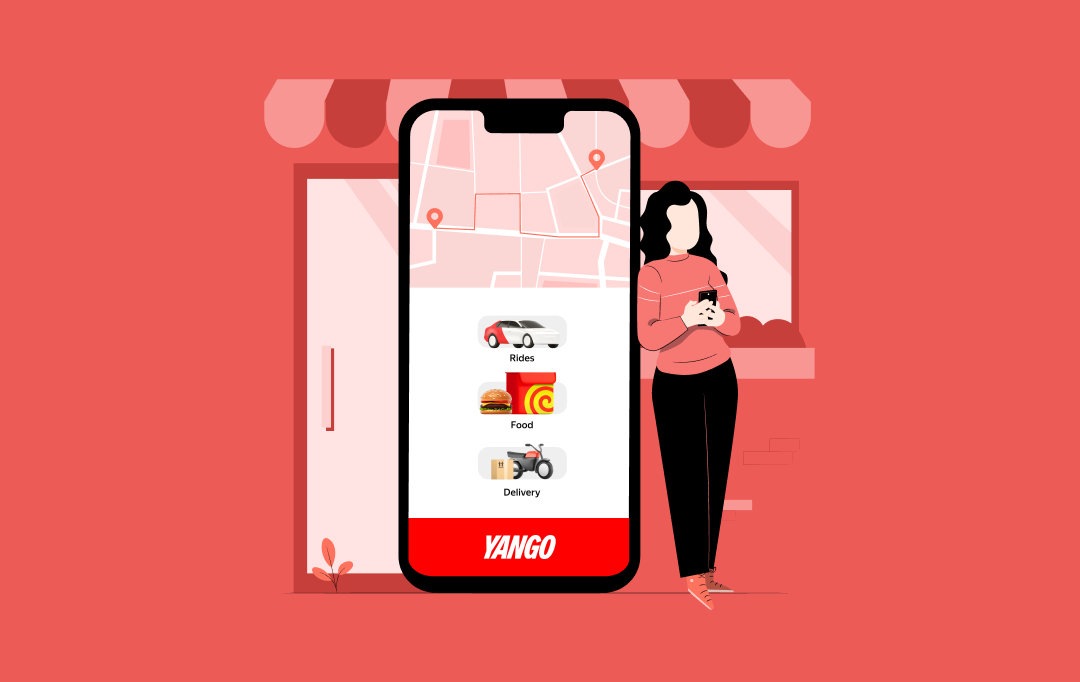- What is Low-Code Development?
- What is Custom App Development?
- Why Choose Custom App Development Over Low-Code App Development?
- 1. Low-code May Encourage Inexperienced Development
- 2. Low-Code Lacks Freedom 0f Design and Features
- 3. Low-Code Approach Makes Scaling and Updation Costlier
- 4. Security and Reliability May be a Concern
- 5. Integration Challenges
- 6. Low-code Apps Can Lower Efficiency
- 7. User Lock-in Concerns
- Low-Code or Custom-Code? What’s Good For Your Business?
Nearly 90% of mobile internet consumption is on smartphone apps.
Additionally, the number one reason why most users uninstall an app is the lack of usability and usefulness.
While the above statistics may not seem to connect and conclude, they imply the importance of app development and indicate how crucial it is to ensure quality of the process and results.
One smart way of doing so is choosing custom application development for your business. Wondering why not low code development? This article talks in detail about that.

Here’s a bunch of reasons why it’s smart to favor custom app development over low-code app development. But first, let us find out what actually is meant by low-code and custom app development.
What is Low-Code Development?
Low-code development is a mobile app development process that employs low-code development platforms including various tools that help build mobile apps through a drag and drop interface.
While low-code platforms help build applications in a short period of time, the ease of access comes with a variety of cons that must be considered before a project is commenced.
What is Custom App Development?
Custom application development is the process of building software for a specific set of users, functions or organizations. The idea of building custom-code applications is to develop software that closely fulfills the needs of the users and meets their expectations.
Custom applications are generally built from scratch and offer limitless customization options.
Why Choose Custom App Development Over Low-Code App Development?
1. Low-code May Encourage Inexperienced Development
Although not every low-code app developer lacks experience, it’s a route often preferred by individuals who may lack technical know-how or expertise.
Of course, a custom-code developer developing your business application from scratch may demand higher compensation compared to our low-code friend. But, this cost will bring with it the valuable experience and availability of a talented custom application development team closely looking after your business’ app development front.
2. Low-Code Lacks Freedom 0f Design and Features
As low-code applications are based upon pre-developed templates or low-code platforms, there isn’t much scope for customization.
If you have ever tried developing a low-code, template-based mobile app before, you may have an idea.
While these templates and platforms enable users to start off the app quickly, the final products often lack various features that may be essential for your business.
Apart from that, even the most minor edits, including graphic and visual updates, may require an unusual amount of extra work. This makes low-cost applications a less preferred option by companies.
3. Low-Code Approach Makes Scaling and Updation Costlier
Unlike custom-code applications, low-code apps have fewer customization options, which we just mentioned. But is this the end of the problem there?
A low-code application is often likely to pose challenges at the time of scaling or update.
For instance, the template that you used for building the application may stop future support for that particular range of products. Or, the latest template updates may not suit your purpose well. Additionally, a template-based application will put limits to your business’ creativity and productivity, keeping the app enclosed inside the same design and set of features.
4. Security and Reliability May be a Concern
In the past ten years, more than 300 data breaches have occurred, causing a global loss of over 100,000 records.
The amount of data lost and leaked may account for tens or hundreds of thousands of dollars, inflicting severe damage on businesses across all industries.
One primary reason why data attacks become easier is the lack of security that low-code platforms may offer.
This majorly happens for the following reasons:
- You or your development partner has not written the code, so it can’t be trusted for its reliability.
- Low-code template developers may eliminate security features that may not hinder the normal function of the application but can leave loopholes for a cyber attack.
However, when you hire a reliable full-cycle app development service company, the team ensures delivering a product that is fully customized as per your business’ security preferences and requirements.
5. Integration Challenges
Another drawback of using low-code platforms is their lack of integrability with other existing tools and software that your business is currently using.
Most low-code platforms come with several limitations around what changes you can make to the output. Additionally, to make these changes, the developer will require the know-how of the platform in use.
This makes integration a challenge. Even if the integration of such a grade is possible and supported by a low-code platform, finding the way through may be difficult as all platforms work differently.
Speaking of custom-code development, it leaves enough room for seamless integration with your existing software.
6. Low-code Apps Can Lower Efficiency
Most low-code apps are built with several short-comings, led by the lack of customization. This means that several useful features may be missing from the application. Or design preferences may not be optimum or as required.
These factors can greatly contribute to lowering the overall efficiency of your team.
As your business app is not performing optimally, your employees may have to step in to guide your users through, or to make amendments or to just manage the mess being created by the low-code counterpart.
Building a custom-code application in the first go will save you the hassle. Also, a custom built application will be designed and developed based on your business’ specific requirements and your target audience.
This can help your business establish a connection with its prospects.
7. User Lock-in Concerns
As a low-code platform comes ready from its developers, we do not have all the access to how the platform functions.
In case of data loss or vendor or user lock-in, your business may just be left helpless or too dependent on the platform developers. This can lead to mistrust or dissatisfaction, accompanied with panic among your users.
In a custom-code application, your team of developers or development partner will be able to make the required amendments on priority.
Also read: Top benefits of custom app development
Low-Code vs Traditional Development
In the sections above, we discussed a variety of factors that support the fact that custom code applications are a tad better than their low-code counterparts. For a better understanding, a high-code vs low-code differentiation table may be helpful:

Low-Code or Custom-Code? What’s Good For Your Business?
Businesses with firm plans of upscaling and expansion would generally consider building a versatile app that can be updated with ease and no limits. Secondly, companies might also have to update app design/features as per the user feedback.
This can precisely be achieved in a custom code application. Although, as mentioned above, low-code applications may appear to save time, effort, and money in the first go; a few months or weeks down the line, you and your users may start discovering the long list of shortcomings.
Save yourself the trouble — consult a reliable custom app development company such as Appinventiv. With qualified resources and years of custom development experience, we create applications that keep our clients and their customers happy.
For instance, for one of our clients, JobGet, we delivered an end-to-end custom application development solution, which resulted in over $2 Million funding for the organization and reduced the job search time for blue collar workers from days to minutes.
For another client, YouCOMM, we developed a custom multi-request format platform that helped reduce patients’ assistance wait time during emergencies and led to 60% growth in nurses’ real-time response time.


- In just 2 mins you will get a response
- Your idea is 100% protected by our Non Disclosure Agreement.

10 Industry-Wise 5G Use Cases Transforming Australian Businesses
Key takeaways: Industry Transformation: 5G is revolutionizing key sectors in Australia, including healthcare, manufacturing, agriculture, and logistics, by enabling real-time data processing, enhanced connectivity, and automation that improve operational efficiency and customer experiences. Enhanced Connectivity for Regional Areas: 5G technology bridges the connectivity gap in remote and regional areas of Australia, supporting industries like agriculture…

How to Build a Secure App in Australia in 2025? All You Need to Know
In today’s hyper-connected world, mobile apps aren’t just conveniences; they are the baseline of modern business. From banking and healthcare to retail and government services, apps power our daily lives. But this digital revolution has a dangerous downside: cyberattacks are escalating alarmingly. More than data exposure, this security breach costs businesses a lot, destroys customer…

How to Build a Ride-Hailing App Like Yango Ride?
Dubai's streets are buzzing with innovation. The city is fast becoming a playground for smart mobility, from AI-driven traffic systems to autonomous taxis. In the middle of it all, the decision to build an app like Yango has brought serious traction, offering seamless, affordable, and tech-savvy transport alternatives. But here’s the thing: success in this…


















